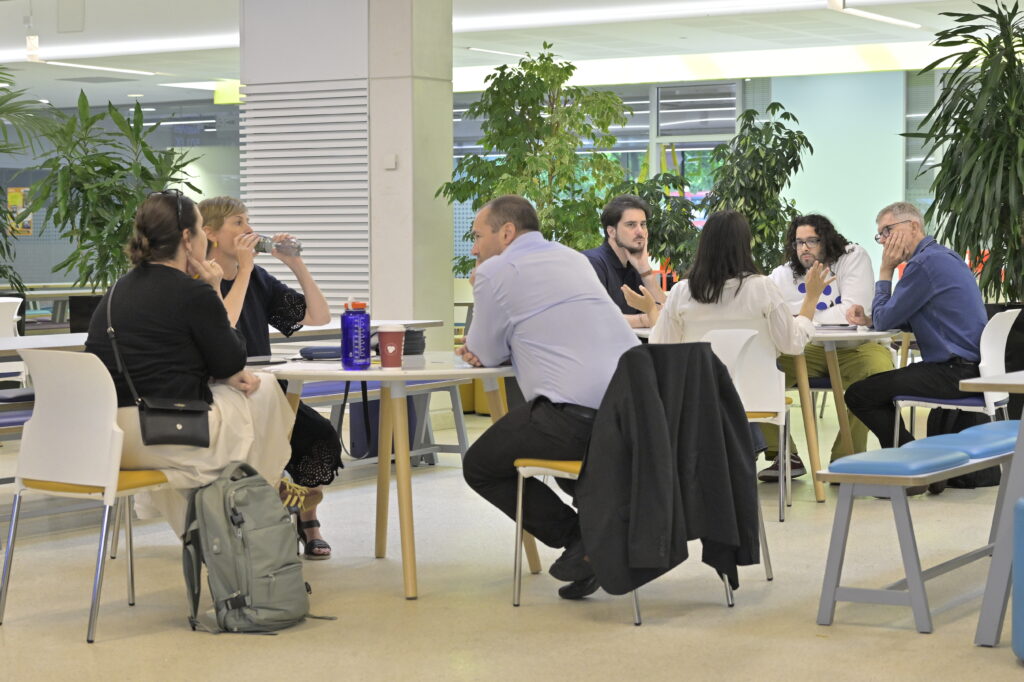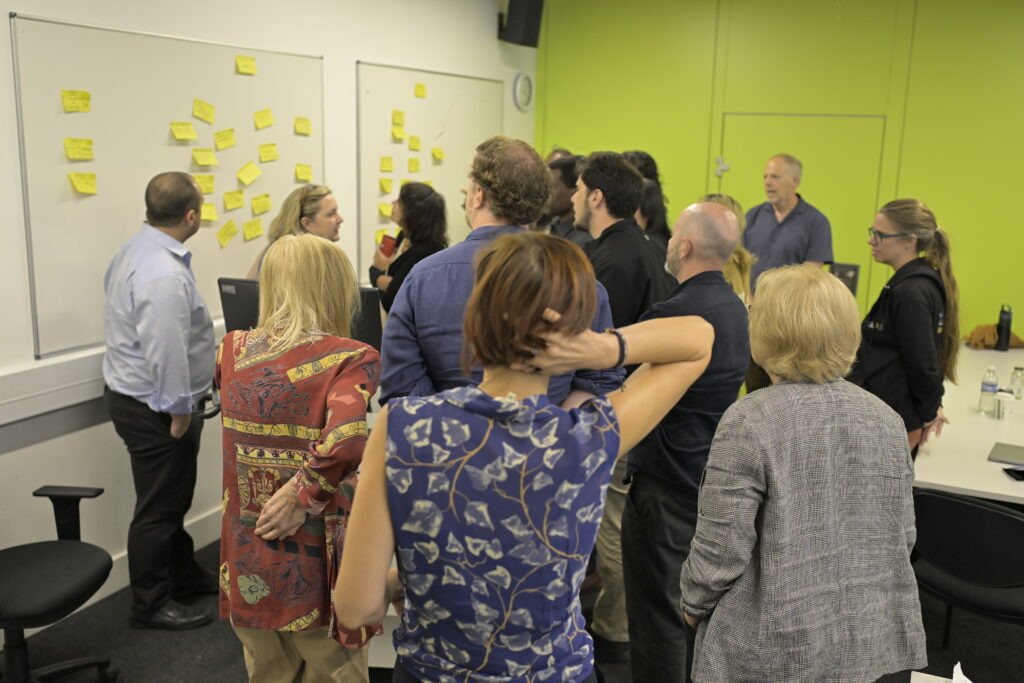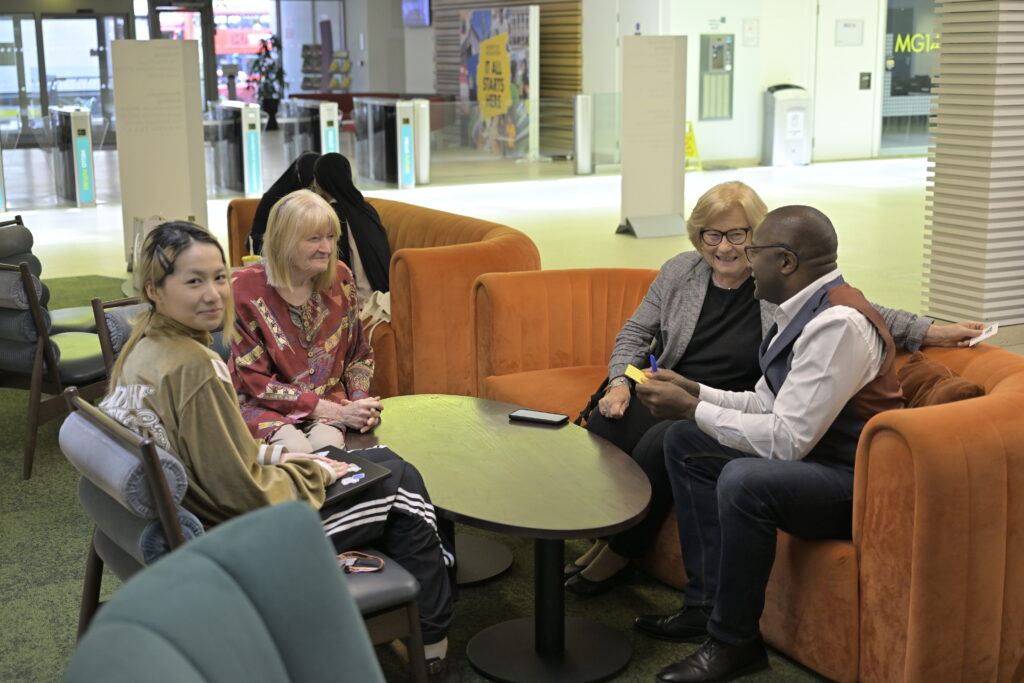CAMRI gathers experts to reflect on the future of media development

Images provided by Prof. Winston Mano
The task of rethinking media development for the Next Generation has become key in our field of media and communication. On July 25, 2025, nearly 40 media development scholars, donors, journalists, and practitioners gathered at the University of Westminster in London for a convening co-hosted by Dr Susan Abbott (Founder, Cross-Pollinate Consulting; Affiliate, University of Westminster) and Prof. Winston Mano of CAMRI.
This important international meeting, the CAMRI Media Development Workshop, asked difficult questions about the future of media development—and pushed toward new directions. Thirty years after the post–Cold War rise of donor-driven media support, we find ourselves again at a crossroads, confronting an evolving information ecosystem, renewed threats to press freedom, shrinking civic space, declining donor investment, and deepening mistrust in traditional institutions.
Participants came together not only to critique the status quo, but also to imagine new possibilities. What should media development look like now—and what must it become in the future? Are there still shared values worth defending, and how can we support new models of resilience and inclusion?
This meeting is only the beginning of an urgent, global conversation for those in academia, philanthropy, journalism, civic tech, or international development, who voice is needed. Dr Abbot observed: “We are entering a new era, one that demands bold thinking, cross-sector collaboration, and deeper attention to local leadership, infrastructure, equity, and impact.”
To that end, the group is to continue the dialogue with the next workshop, also hosted by CAMRI, set to take place on Tuesday, November 25, 2025, with both in-person and virtual participation options. Professor Mano added that, “We are also partnering with the IAMCR Media Sector Development Working Group to host a pre-conference and multiple sessions at IAMCR 2026 in Galway.”
Both Dr Abbott and Professor Mano invite more scholars and practitioners to join the efforts in co-creating a next-generation vision for media development and one that is resilient, inclusive, collaborative, and rooted in the lived realities of journalists and communities around the world. Dr Abbot concluded by saying, “Let us move forward together, not in reaction but in imagination”. The full report is available here below.
REPORT: The Future of Media Development Is Not Yet Written
For many participants, this was the first in-person convening since the tumultuous events of January 2025, when the Trump administration issued sweeping Executive Orders that abruptly canceled USAID’s global media assistance portfolio. This decision triggered a chain reaction: implementers shut down programs, donors paused funding mid-cycle, and trusted media partners faced layoffs and closures. A once vibrant field was suddenly on the defensive.
This crisis compounded the lingering effects of earlier disruptions, especially the 2024 restructuring of the Open Society Foundations’ media portfolio, which had already sent shockwaves through the ecosystem. But despite this grim backdrop, the tone in London was far from defeatist. The workshop brimmed with solidarity, strategy, and creative urgency.
Opening Provocation: “Media Development Is Dead—Long Live Media Development”
Professor Mano welcomed participants with both humor and seriousness, likening the gathering to a support group for people who had long known the problems but now needed to find new ways forward. Dr. Susan Abbott opened with a keynote provocation, asking: “If the golden era of donor-funded media development has ended—what now?”
She traced the historical trajectory of the field, from the optimism of post–Cold War transitions to the professionalization of democracy assistance, and now to a period marked by volatility and backlash. Abbott urged participants to grieve what has been lost—but also to embrace the opportunity to reimagine media development for the current geopolitical and technological moment. She highlighted the sector’s structural dependence on external donors and the unfinished business of localization.
Importantly, Abbott argued that while the field may not survive in its current form, its core mission remains urgent. Values such as freedom of expression, access to information, and justice must continue to guide us—but the models, mechanisms, and messengers may need to change.
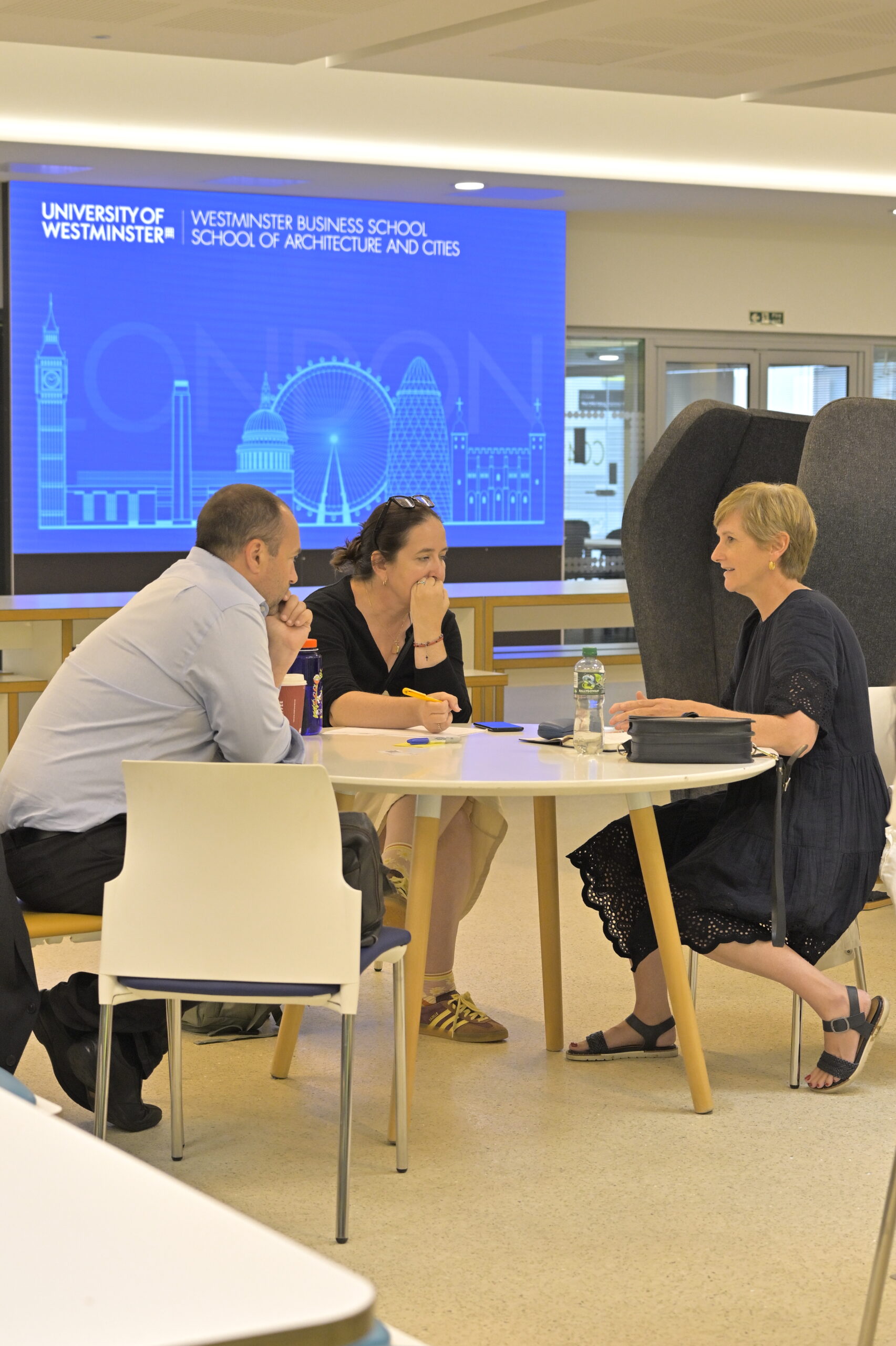 Observations and Emerging Themes
Observations and Emerging Themes
Throughout the morning session, several themes emerged from participants’ reflections:
- Localization is not optional; it’s existential. One participant put it bluntly: “If we had truly localized years ago, this moment would have landed very differently.”
- South-to-South coalitions must replace outdated North-to-South paradigms. “Our partnerships must be based on co-creation, not compliance,” noted another.
- Movement journalism, strategic litigation, and civic tech were cited as promising areas of investment, especially where traditional media has been hollowed out or captured.
- Recent M&E data underscored that what survived wasn’t necessarily the most innovative—it was the most embedded in local communities and political realities.
Breakout groups dove into key areas: decolonizing evaluation, alternative funding models, and reframing media development as democratic infrastructure, rather than solely journalism support.
Listening to the Field: Highlights from the Room
- Maha Taki (IFPIM): “Media can’t be treated as a stand-alone sector anymore. It must be embedded into the political analysis and civic strategies of our work.”
- Sonia Whitehead (BBC Media Action): “The instinct is to do less with less. But we must resist the temptation to become smaller and safer. We need to be bolder, even now.”
- Tom Law (GFMD): “Localization isn’t just about shifting implementation. It means trusting local agendas and funding them directly.”
- Quinn McKew (ARTICLE 19): “Tech policy, digital rights, climate justice—we need to rewire our field to intersect with these urgent domains.”
- Ruth Kronenburg (Free Press Unlimited): “We can no longer build for audiences. We must build with them. Young people aren’t waiting for our institutions—they’re creating their own media futures.”
Field in Flux: Evidence and Urgency
Recent evidence from the International Fund for Public Interest Media’s 2024 Global Snapshot shows that most media in low- and middle-income countries operate under impossible conditions: weak markets, political interference, and virtually no public funding. Global investment in public interest media remains dramatically below what is needed to sustain a healthy information ecosystem (IFPIM, 2024).
The Workshop Reading Packet included case studies and analysis from BBC Media Action, Internews Europe, and Free Press Unlimited. A joint rapid assessment estimates that over $150 million in annual media funding disappeared in early 2025, affecting more than 50 countries. The impact includes media closures, journalist layoffs, and rising threats to press freedom in fragile contexts.
As Danny Fenster observed in Nieman Reports (2025):
“The floor fell out from under dozens of outlets that relied on U.S. support not just for operations, but for legitimacy and protection.”
These effects have been especially acute in places like Syria (Radio Rozana), Uganda, Cuba, and the Western Balkans. Investigative units in Latin America have folded. Local actors are stepping up—regional funds, civic tech, and journalist networks—but they operate with limited resources. Meanwhile, authoritarian actors are rushing in to fill the void—offering funding, narrative dominance, and repression. The GFMD’s 2023 mapping in the Western Balkans urges donor transitions to be co-created, not imposed. In the words of the report:
“Donor transitions cannot be imposed from above, they must be co-created with local actors who hold the context, the trust, and the vision.”
Framing the Moment: A Crossroads for Media Development
This is an inflection point. The question is no longer “how do we get back to normal?” but rather: “what kind of system do we want to build from here?” The “Media Development: Crises, Resilience & Future Models” workshop brought together over 60 implementers, donors, researchers, journalists, and advocates to reflect and respond. The aim was not only to assess damage, but to co-create solutions.
How do we build a field that is inclusive, locally led, collaborative, and durable in a multipolar, digital, and climate-impacted world?
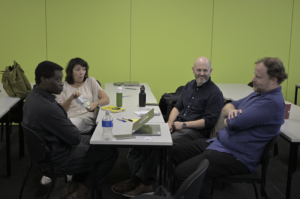 What Comes Next?
What Comes Next?
The July workshop ended not with answers, but with commitments. In closing, participants shared:
- “I will host a regional listening session to surface alternative funding models.”
- “We should create a shared repository of lessons learned from the OSF and USAID exits.”
- “I will write about this moment to document our history and propose new paths.”
CAMRI will host the next convening on November 25, 2025, with additional sessions planned in coordination with IAMCR 2026.
Conclusion: Forward, Together
The CAMRI workshop was not a memorial, it was a launchpad. It reminded us that the field may be in flux, but the work continues. Some will build new coalitions. Others will document what’s working. Still others will pressure donors and funders to move faster, deeper, and more equitably.
“We can’t do this alone anymore,” one participant said. “And we shouldn’t have to.”
CAMRI is committed to holding space for this community to continue convening, sharing, and imagining. As one participant wrote in their feedback:
“We left with questions, yes. But also with courage. And a community.”
Sources Cited
- International Fund for Public Interest Media (2024). Global Snapshot: Media Under Pressure.
- Global Forum for Media Development (2023). Policy Gaps and Media Support Mechanisms.
- Nieman Reports (2025). After the Cuts: Journalism in the Vacuum.
- Internews Europe, BBC Media Action, and Free Press Unlimited (2025). Rapid Assessment: Media After USAID’s Withdrawal.


